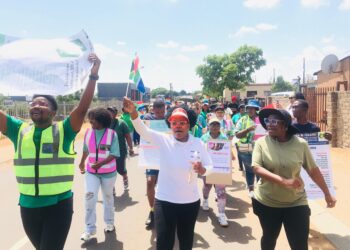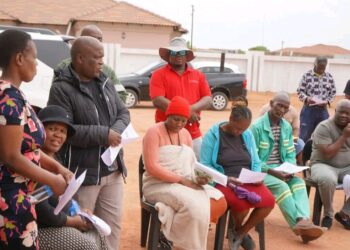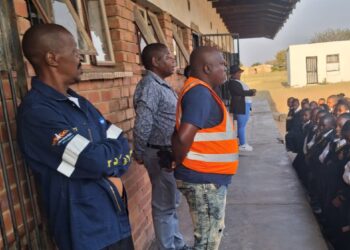MPUMALANGA – Sexual violence remains a major crisis in South Africa. In the first week of April 2025 alone, 222 suspects were arrested for rape. However, research reveals that many of the complainants in these cases won’t see the inside of a courtroom.
According to the latest crime statistics report, which covers the period from October to December 2024, the Kabokweni area has once again been identified as the rape, sexual offence, and sexual assault capital of Mpumalanga. It is mentioned for the second consecutive year in the Top 30 Police Stations across the country where the most rape, sexual assault, and sexual offence cases have been reported.
Despite South Africa’s strong laws, several gaps in the system contribute to cases falling through the cracks, a phenomenon known as rape case attrition.
A 2023 study on factors associated with rape case attrition in the South African criminal justice system found that 35% of cases were closed by police, 31% were declined by prosecutors, 16% were enrolled but later dropped, 19% went on trial, and only 9% were finalised with a conviction.
Zethu Albanie, a socio-legal researcher and social justice advocate, highlights the reasons why so many rape cases do not result in convictions.
“Rape case attrition is the gradual dropping of cases before conviction. It looks at the number of rape cases reported to the police in comparison to the number of cases that actually go to trial and result in a conviction,” said Albanie.
“Rape case attrition is deeply linked to how survivors’ identities, behaviours, and circumstances are interpreted by police, prosecutors, and judges throughout the justice process. The burden is placed on survivors to be consistent, respectable, and composed, even in the aftermath of trauma,” she added.
South Africa has robust laws, such as the Sexual Offences Act, and a progressive constitution that guarantees dignity and equality. But these promises often fall short in practice.
For example, the Integrated Victim Empowerment Programme is designed to ensure that survivors are treated with dignity. However, many report secondary victimisation at the hands of police, such as disbelief, victim-blaming, or intimidation.
Insufficient training contributes to the low success rate of prosecuted rape cases. Some individuals within the criminal justice system lack adequate training on the dynamics of sexual violence and the impact of trauma on memory, behaviour, and testimony.
Survivors are subjected to hostile cross-examinations and long delays that make seeking justice feel like punishment.
Prosecutors often rely on subjective assessments of ‘victim credibility’, for example, choosing not to prosecute cases involving women who were drinking or dressed in a certain way. The result is a system that punishes survivors for not fitting the narrow mould of the ‘ideal victim’. Judges are not immune to these patterns either.
Police discretion also plays a huge role in shaping the course of a case. Many officers cling to stereotypes, disbelieve survivors, or show contempt and apathy in ways that mirror wider societal attitudes.
Another issue contributing to gaps in the system is forensic capacity. The South African Police Service Forensic Science Laboratory is facing a DNA backlog exceeding 140,000 cases.
To transform justice for survivors of rape in South Africa, structural, ideological, and institutional change is needed. Mandatory anti-bias, racism, and sexism training for all justice system personnel is essential. Accountability mechanisms must be put in place for officials who mishandle cases or show bias.
The focus must shift to perpetrator culpability and stop making survivors prove their innocence. Investment in survivor support services is needed to ensure that every survivor, regardless of class, race, or background, has access to comprehensive support.
Altogether, 784 cases of rape were reported in Mpumalanga from October to December 2024. This marks an increase from the 774 cases reported between October and December 2023. More concerning is the fact that many of the rape cases were committed by people known to the victims, such as family and friends.























